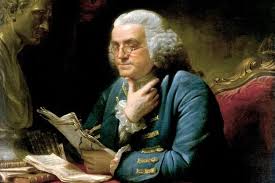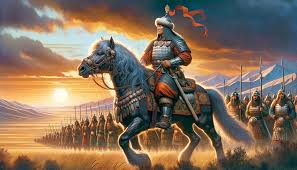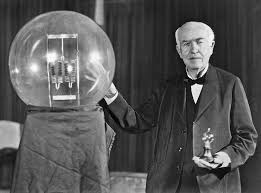History is filled with remarkable individuals whose contributions have shaped the world in profound ways. While many historical figures are well-known for their significant achievements, there are also lesser-known, yet fascinating aspects of their lives that often go unmentioned. In this article, we will uncover some unbelievable facts about historical figures that might surprise you. These intriguing tidbits reveal the complexity and uniqueness of these individuals, providing a deeper understanding of their lives and legacies.
1. Benjamin Franklin: The Multitalented Founding Father

1.1. A Founding Father’s Hidden Talents
- Inventor and Scientist: Benjamin Franklin was not just a founding father and statesman but also an accomplished inventor and scientist. He invented the bifocal glasses and the Franklin stove, and he conducted pioneering experiments with electricity, including the famous kite experiment that demonstrated the electrical nature of lightning.
- Public Library Pioneer: Franklin was instrumental in establishing the first public library in America. In 1731, he founded the Library Company of Philadelphia, which provided access to books for the general public, fostering a culture of literacy and learning.
1.2. Diplomatic Achievements
- French Alliance: Franklin played a crucial role in securing a crucial alliance with France during the American Revolution. His charm and diplomacy were key in gaining French support, which significantly contributed to the American victory over Britain.
2. Cleopatra: The Queen of the Nile’s Hidden Secrets
2.1. Her Royal Ancestry
- Greek Heritage: Cleopatra VII, the last active ruler of the Ptolemaic Kingdom of Egypt, was not ethnically Egyptian but of Greek descent. Her family, the Ptolemies, were Macedonian Greeks who had ruled Egypt since the time of Alexander the Great.
2.2. Linguistic Prowess
- Multilingual Abilities: Cleopatra was renowned for her linguistic abilities. She spoke several languages fluently, including Egyptian, Greek, and Latin. Her multilingualism facilitated diplomatic relations and solidified her position as a formidable ruler in a diverse and complex political landscape.
3. Leonardo da Vinci: The Renaissance Polymath
3.1. A Man of Many Skills
- Not Just a Painter: Leonardo da Vinci is celebrated for masterpieces like the Mona Lisa and The Last Supper, but his talents extended far beyond painting. He was also an accomplished engineer, architect, anatomist, and inventor. His notebooks are filled with designs for various machines and devices, many of which were ahead of their time.
3.2. An Unfinished Legacy
- Uncompleted Works: Leonardo da Vinci was notorious for leaving many of his projects unfinished. His insatiable curiosity and tendency to pursue new interests often led him to abandon projects before completing them. Some of his most famous works, including the monumental equestrian statue of Francesco Sforza, were never realized.
4. Marie Curie: The Pioneer of Radioactivity
4.1. Trailblazing Achievements
- Double Nobel Laureate: Marie Curie made history by becoming the first woman to win a Nobel Prize and remains the only person to have won Nobel Prizes in two different scientific fields—Physics (1903) and Chemistry (1911). Her groundbreaking research on radioactivity revolutionized the understanding of atomic structure.
4.2. Personal Sacrifices
- Health Risks: Curie’s pioneering work with radioactive materials took a toll on her health. At the time, the harmful effects of radiation exposure were not well understood, and Curie died of aplastic anemia, a condition linked to her prolonged exposure to radiation.
5. Genghis Khan: The Mongol Conqueror’s Unexpected Legacy

5.1. A Unifying Leader
- Mongol Unity: Genghis Khan, born as Temujin, is known for his military conquests and the creation of the largest contiguous empire in history. However, he is also credited with uniting the Mongol tribes, which had been fragmented and warring before his rise to power.
5.2. Cultural Impact
- Legal Reforms: Genghis Khan implemented a comprehensive legal code known as the Yassa, which established laws and regulations that governed various aspects of Mongol society. This code contributed to the administration of his vast empire and influenced the regions under Mongol control.
6. Winston Churchill: The Wartime Leader’s Surprising Skills
6.1. An Accomplished Writer
- Nobel Prize in Literature: Winston Churchill, known for his leadership during World War II, was also a prolific writer. He was awarded the Nobel Prize in Literature in 1953 for his historical writings and speeches, which were recognized for their exceptional quality and impact.
6.2. Painting as Therapy
- Artistic Pursuits: Churchill took up painting as a hobby during his periods of political downtime. His art, primarily landscapes and portraits, provided him with a creative outlet and was an important aspect of his personal life. Some of his paintings have been exhibited and sold for significant sums.
7. Hedy Lamarr: The Hollywood Star Who Invented a Key Technology
7.1. Hollywood and Innovation
- Frequency Hopping: Hedy Lamarr, a famous Hollywood actress of the 1940s, was also an inventor. She co-developed a technology called frequency hopping, which was initially intended to prevent the jamming of radio-controlled torpedoes. This technology laid the groundwork for modern wireless communications, including Wi-Fi and Bluetooth.
7.2. Recognition
- Underappreciated Genius: Despite her groundbreaking contributions to technology, Lamarr’s inventions were not widely recognized during her lifetime. It was only later that her work received the acknowledgment it deserved, highlighting the intersection of glamour and scientific innovation.
8. Nikola Tesla: The Visionary Inventor’s Little-Known Facts
8.1. A Prolific Inventor
- Early Electrical Innovations: Nikola Tesla is renowned for his contributions to alternating current (AC) electrical systems and numerous inventions. However, he also envisioned and developed concepts such as wireless transmission of electricity and remote control, which were far ahead of his time.
8.2. Eccentric Habits
- Unconventional Lifestyle: Tesla had a number of eccentric habits, including a fascination with pigeons. He often fed and cared for pigeons in New York City, and some reports suggest he even developed a deep emotional bond with them.
9. Abraham Lincoln: The 16th President’s Lesser-Known Facts
9.1. Wrestling Achievements
- Wrestling Skills: Before becoming president, Abraham Lincoln was known for his impressive physical strength and wrestling skills. He earned a reputation as a skilled wrestler in his youth, participating in numerous matches and earning accolades for his prowess.
9.2. A Complex Legacy
- Emancipation Proclamation: While Lincoln is celebrated for his leadership during the Civil War and the Emancipation Proclamation, he initially hesitated on the issue of slavery, prioritizing the preservation of the Union over immediate abolition. His views evolved significantly over time, reflecting his complex and evolving stance on the issue.
10. Thomas Edison: The Inventor’s Fascinating Facts

10.1. The Light Bulb Debate
- Patents and Innovations: Thomas Edison is famously credited with inventing the practical light bulb. However, he was not the only inventor working on electric lighting. His development of a commercially viable bulb and the establishment of the first electric power station were pivotal in bringing electric light to the masses.
10.2. Prolific Inventor
- Numerous Patents: Edison held over 1,000 patents for various inventions, ranging from the phonograph to the motion picture camera. His prolific inventiveness and entrepreneurial spirit were instrumental in shaping modern technology and industry.
Conclusion
The lives of historical figures are often more complex and intriguing than commonly known. From groundbreaking inventions and unexpected talents to unique personal quirks and lesser-known achievements, these figures offer a wealth of fascinating facts that enrich our understanding of their contributions to history. By delving into these surprising aspects, we gain a deeper appreciation for the multifaceted nature of the individuals who have shaped the world.

